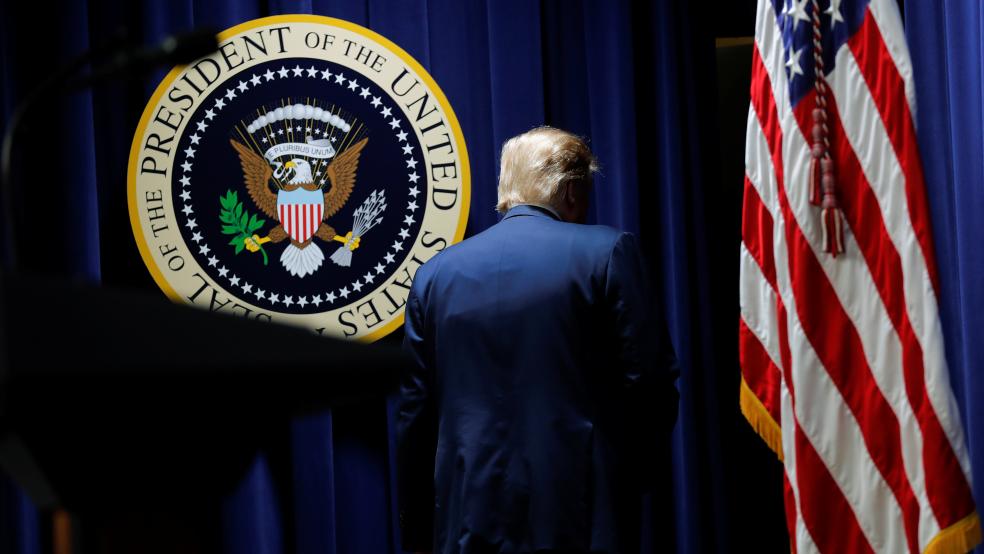A top priority for lawmakers when they return from recess at the end of the month will be reaching a deal on spending levels for next year, but The Hill’s Alexander Bolton says there are some serious obstacles standing in the way.
Senate Majority Leader Mitch McConnell (R-KY) and House Speaker Nancy Pelosi (D-CA) are reportedly working on a spending deal, which is expected to hinge to some extent on the question of parity for increases in defense and nondefense spending. But lawmakers have been unable to agree on much lately, including less controversial issues such as disaster relief, with bipartisan talks on an aid package falling apart before Congress left town last week.
“There is a complete breakdown. The parties can’t get together on anything, they can’t even agree on disaster supplementals, which traditionally have been bipartisan deals that had overwhelming support,” GOP strategist Brian Darling told The Hill. “It just shows the parties are well into election mode and neither party wants to give the other party an edge.”
A looming presence: President Trump played a decisive role in the collapse of the disaster relief talks, pushing Republicans to reject Democratic efforts to provide additional aid to Puerto Rico. And he is expected to exert a powerful influence on 2020 spending negotiations as well, in ways that could make a deal harder to reach.
McConnell in the middle: The Senate majority leader now has to reach a deal with both Pelosi and Trump, even as they pull in opposite directions. Pelosi is expected to push for higher nondefense spending, while Trump has sworn not to sign another bill that does so.
McConnell called for a middle way last week: “The only way we can, in a divided government, get a rational spending-cap bill is in the political center,” McConnell said. “[Pelosi’s] most liberal members probably won’t vote for it. Many of my conservative members won’t vote for it, but we have to do it because the country will suffer, either through a [continuing resolution] or, even worse, a sequester if we don’t do it.”
Trump may play the spoiler: While it’s relatively easy to imagine McConnell and Pelosi finding a way to reach an agreement on spending, getting Trump to go along with it is another matter. “I think McConnell and Pelosi could make a deal. I also think they could make a deal on disaster aid. I think the problem is Trump and I think the problem is he’s just not coherent on the subject,” former GOP staffer Jim Dyer told The Hill.
Dyer questioned Trump’s opposition to raising the spending caps, which will take effect next year if lawmakers and the president are unable to work out a deal to raise them. If history is any guide, a spending deal will likely involve more defense spending to satisfy Republicans and more nondefense spending to satisfy Democrats, with the only question being the total amounts. But Trump’s threat to reject such a deal could leave lawmakers with no workable alternative.
One way out: Lawmakers may have to make a deal on their own and present it Trump as the only option. At that point, the president will have to either sign the bill or take responsibility for the fallout, which could include automatic cuts in discretionary spending that would affect the Pentagon if lawmakers are unable to agree on a stopgap spending measure.
No certain outcome: Former Sen. Byron Dorgan (D-ND) told The Hill that a spending deal will be hard to reach. “It’s a really hard thing to find a way to get Republicans and Democrats and to get the Congress and the president to deal with the issue of budget caps,” Dorgan said. “That’s going to be a tall order. There’s very little historical evidence in the last couple years that there’s able to be progress, either working across the aisle in Congress or working with this president.”




